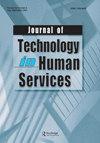评估学习成果和评估社会工作技能发展:在线教育与面对面教育的比较
IF 1.5
Q2 SOCIAL WORK
引用次数: 1
摘要
摘要本文介绍了在线和面对面学生在社会工作技能课上的学习结果评估结果。对学生的背景和学业因素进行了比较,包括研究生院前的平均绩点、完成本科教育后的时间、本科学位以及以前在社会服务部门的工作和培训。学生们还在课程开始时和完成后完成了技能自我评估。用于衡量学习成绩的数据包括获得的总分和成绩。还从教员的实地笔记和观察中收集了数据。使用描述性统计和双变量分析对数据进行分析,包括单向和重复测量方差分析。在线学生认为他们进入课堂时掌握了更多的技能,但在后评估中没有差异。除生物-心理-社会评估外,学生在主要作业中的得分差异极小;面对面的学生得分更高。讲师们认为在线建立融洽关系具有挑战性。研究结果表明,在线学习和面对面学习不相上下。重要的是要继续研究哪些学生在网上和面对面的课程中表现最好,以帮助学生根据自己的学习偏好做出最佳选择。本文章由计算机程序翻译,如有差异,请以英文原文为准。
Evaluating Learning Outcomes and Assessing Social Work Skill Development: Comparing Online vs. In-Person Education
Abstract This article presents results from an evaluation of learning outcomes in a social work skills class between online and in-person students. Students were compared on background and academic factors, including grade point average prior to graduate school, time since completion of undergraduate education, undergraduate degree, and previous work and training in social services. Students also completed a skills self-assessment at the beginning of the class and upon completion. Data used to measure learning outcomes included total points earned and grades. Data were also collected from instructors’ field notes and observations. Data were analyzed using descriptive statistics and bivariate analyses, including one way and repeated measure ANOVA. Online students perceived they entered the class with more skills but no differences existed at the post-assessment. Minimal differences existed in students’ scores on major assignments except the bio-psycho-social assessment; in-person students scored higher. Instructors identified rapport building online as challenging. Results suggest parity of online and in-person learning. It is important to continue researching which students do best in--online and in-person coursework--in order to assist students in making the best choices for their learning preferences.
求助全文
通过发布文献求助,成功后即可免费获取论文全文。
去求助
来源期刊

JOURNAL OF TECHNOLOGY IN HUMAN SERVICES
SOCIAL WORK-
CiteScore
4.20
自引率
6.70%
发文量
6
期刊介绍:
This peer-reviewed, refereed journal explores the potentials of computer and telecommunications technologies in mental health, developmental disability, welfare, addictions, education, and other human services. The Journal of Technology in Human Services covers the full range of technological applications, including direct service techniques. It not only provides the necessary historical perspectives on the use of computers in the human service field, but it also presents articles that will improve your technology literacy and keep you abreast of state-of-the-art developments.
 求助内容:
求助内容: 应助结果提醒方式:
应助结果提醒方式:


